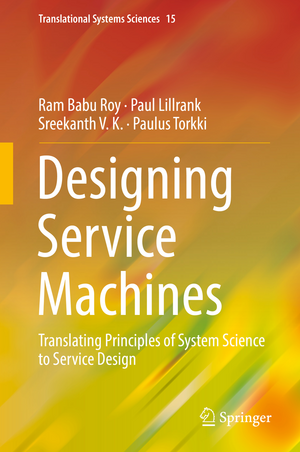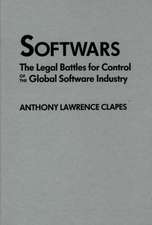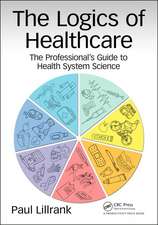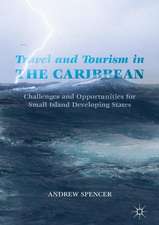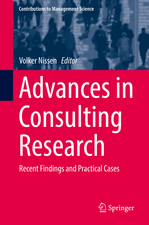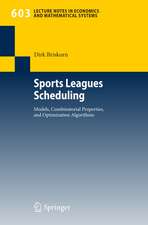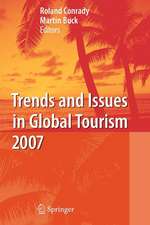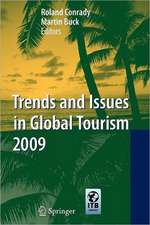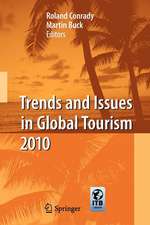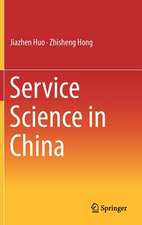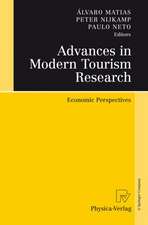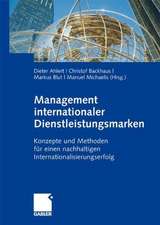Designing Service Machines: Translating Principles of System Science to Service Design: Translational Systems Sciences, cartea 15
Autor Ram Babu Roy, Paul Lillrank, Sreekanth V. K., Paulus Torkkien Limba Engleză Hardback – 12 iul 2018
This book presents a general conceptual framework to translate principles of system science and engineering to service design. Services are co-created immaterial, heterogeneous, and perishable state changes. A service system includes the intended benefit to the customer and the structure and processes that accomplish this benefit. The primary focus is on the part of the service system that can reproduce such processes, called here a Service Machine, and methodological guidelines on how to analyze and design them. While the benefit and the process are designed based on the domain knowledge of each respective field, service production systems have common properties. The Service Machine is a metaphor that elicits the fundamental characteristics of service systems that do something efficiently, quickly, or repeatedly for a defined end. A machine is an artifact designed for a purpose, has several parts, such as inputs, energy flows, processors, connectors, and motors assembled as per design specifications. In case of service machine, the components are various contracts assembled on contractual frames. The book discusses Emergency Medical Services (EMS) and Emergency Departments (ED) as cases. They illustrate that service machines need to be structured to adapt to the constraints of the served market acknowledging the fact that services are co-created through the integration of producers’ and customers’ resources. This book is highly recommended for those who are interested in understanding the fundamental concepts of designing service machines.
| Toate formatele și edițiile | Preț | Express |
|---|---|---|
| Paperback (1) | 376.80 lei 6-8 săpt. | |
| Springer Nature Singapore – 19 ian 2019 | 376.80 lei 6-8 săpt. | |
| Hardback (1) | 384.09 lei 6-8 săpt. | |
| Springer Nature Singapore – 12 iul 2018 | 384.09 lei 6-8 săpt. |
Din seria Translational Systems Sciences
- 20%
 Preț: 628.87 lei
Preț: 628.87 lei - 15%
 Preț: 642.51 lei
Preț: 642.51 lei - 18%
 Preț: 948.92 lei
Preț: 948.92 lei - 18%
 Preț: 786.52 lei
Preț: 786.52 lei - 20%
 Preț: 661.65 lei
Preț: 661.65 lei - 18%
 Preț: 720.68 lei
Preț: 720.68 lei - 18%
 Preț: 782.57 lei
Preț: 782.57 lei - 18%
 Preț: 728.43 lei
Preț: 728.43 lei -
 Preț: 447.24 lei
Preț: 447.24 lei - 15%
 Preț: 654.30 lei
Preț: 654.30 lei - 18%
 Preț: 783.20 lei
Preț: 783.20 lei -
 Preț: 389.11 lei
Preț: 389.11 lei - 18%
 Preț: 882.82 lei
Preț: 882.82 lei - 18%
 Preț: 884.22 lei
Preț: 884.22 lei - 18%
 Preț: 728.91 lei
Preț: 728.91 lei - 18%
 Preț: 723.69 lei
Preț: 723.69 lei - 18%
 Preț: 776.09 lei
Preț: 776.09 lei - 18%
 Preț: 891.48 lei
Preț: 891.48 lei - 18%
 Preț: 1106.31 lei
Preț: 1106.31 lei - 18%
 Preț: 1106.79 lei
Preț: 1106.79 lei - 18%
 Preț: 775.30 lei
Preț: 775.30 lei -
 Preț: 385.08 lei
Preț: 385.08 lei - 15%
 Preț: 635.65 lei
Preț: 635.65 lei - 18%
 Preț: 941.68 lei
Preț: 941.68 lei - 18%
 Preț: 944.99 lei
Preț: 944.99 lei - 18%
 Preț: 1113.26 lei
Preț: 1113.26 lei - 18%
 Preț: 1114.02 lei
Preț: 1114.02 lei
Preț: 384.09 lei
Nou
Puncte Express: 576
Preț estimativ în valută:
73.50€ • 75.94$ • 61.14£
73.50€ • 75.94$ • 61.14£
Carte tipărită la comandă
Livrare economică 20 martie-03 aprilie
Preluare comenzi: 021 569.72.76
Specificații
ISBN-13: 9789811309168
ISBN-10: 9811309167
Pagini: 150
Ilustrații: XV, 82 p. 26 illus., 16 illus. in color.
Dimensiuni: 155 x 235 mm
Greutate: 0.32 kg
Ediția:1st ed. 2019
Editura: Springer Nature Singapore
Colecția Springer
Seria Translational Systems Sciences
Locul publicării:Singapore, Singapore
ISBN-10: 9811309167
Pagini: 150
Ilustrații: XV, 82 p. 26 illus., 16 illus. in color.
Dimensiuni: 155 x 235 mm
Greutate: 0.32 kg
Ediția:1st ed. 2019
Editura: Springer Nature Singapore
Colecția Springer
Seria Translational Systems Sciences
Locul publicării:Singapore, Singapore
Cuprins
Dedication.- Foreword.- Preface.- Acknowledgments.- List of abbreviations.- Introduction.- The conceptual tools.- The Service Machine.- Case studies.- Summary and Discussion.- References.
Notă biografică
Ram Babu Roy is an Assistant Professor in Rajendra Mishra School of Engineering Entrepreneurship, IIT Kharagpur, India. He Holds M.Sc (Physics) from IIT Kanpur, M.Tech (VLSI Design Tools and Technology) from IIT Delhi and Doctorate in Management from IIM Calcutta. His major and minor areas of specialization are Management Information Systems and Operations Management respectively. Earlier, he has served as a Scientist in the Aeronautical Development Establishment, Defence Research and Development Organization (DRDO), Bangalore, India. His research interests include complex networked systems, healthcare operations management and information systems.
Paul Lillrank is professor of Quality and Service Management at Aalto University School of Science. He has served as the head of the Department of Industrial Engineering and Management, and as Academic Dean of the school’s MBA program. He completed his Ph.D. in Social and Political Sciences at Helsinki University after post-graduate studies in Japan, where he researched quality management in Japanese industry. His research area is Health Systems Science, especially processes, service integration, and operating logics. He has co-founded The Institute of Healthcare Engineering, Management and Architecture (HEMA) at Aalto, and the Nordic Healthcare Group (NHG) Co. Ltd., a consultancy company.
Sreekanth V.K. is a Research Scholar in Rajendra Mishra School of Engineering Entrepreneurship, Indian Institute of Technology Kharagpur, Kharagpur, India. He completed his Master of Technology in Systems Analysis and Computer Applications from National Institute of Technology Karnataka, Surathkal, India and Bachelor of Technology in Electrical and Electronics Engineering from Mahatma Gandhi University, Kerala, India. He works on resource optimization in Emergency Medical Services, especially in Indian context, using data-driven approach. His research interests include data science, decision science and agent basedmodeling. Prior to joing the PhD program, he worked with Infosys Limited, India. He has attained a good exposure to the life cycles of software development in Equity finance domain. He has also been a part of Education & Research Department and the Innovation Hub of Infosys.
Paulus Torkki is an Associate Professor of Healthcare Operations Management in the University of Helsinki in Faculty of Medicine. After the doctoral dissertation, Torkki was research director of Healthcare Management Institute in Aalto University. Torkki has also been working in private companies as a consultant and in various business development positions. His research interest and publications mainly focus on health care operations management, focusing on the performance measurement and the development of the care processes and pathways.
Paul Lillrank is professor of Quality and Service Management at Aalto University School of Science. He has served as the head of the Department of Industrial Engineering and Management, and as Academic Dean of the school’s MBA program. He completed his Ph.D. in Social and Political Sciences at Helsinki University after post-graduate studies in Japan, where he researched quality management in Japanese industry. His research area is Health Systems Science, especially processes, service integration, and operating logics. He has co-founded The Institute of Healthcare Engineering, Management and Architecture (HEMA) at Aalto, and the Nordic Healthcare Group (NHG) Co. Ltd., a consultancy company.
Sreekanth V.K. is a Research Scholar in Rajendra Mishra School of Engineering Entrepreneurship, Indian Institute of Technology Kharagpur, Kharagpur, India. He completed his Master of Technology in Systems Analysis and Computer Applications from National Institute of Technology Karnataka, Surathkal, India and Bachelor of Technology in Electrical and Electronics Engineering from Mahatma Gandhi University, Kerala, India. He works on resource optimization in Emergency Medical Services, especially in Indian context, using data-driven approach. His research interests include data science, decision science and agent basedmodeling. Prior to joing the PhD program, he worked with Infosys Limited, India. He has attained a good exposure to the life cycles of software development in Equity finance domain. He has also been a part of Education & Research Department and the Innovation Hub of Infosys.
Paulus Torkki is an Associate Professor of Healthcare Operations Management in the University of Helsinki in Faculty of Medicine. After the doctoral dissertation, Torkki was research director of Healthcare Management Institute in Aalto University. Torkki has also been working in private companies as a consultant and in various business development positions. His research interest and publications mainly focus on health care operations management, focusing on the performance measurement and the development of the care processes and pathways.
Textul de pe ultima copertă
This book presents a general conceptual framework to translate principles of system science and engineering to service design. Services are co-created immaterial, heterogeneous, and perishable state changes. A service system includes the intended benefit to the customer and the structure and processes that accomplish this benefit. The primary focus is on the part of the service system that can reproduce such processes, called here a Service Machine, and methodological guidelines on how to analyze and design them. While the benefit and the process are designed based on the domain knowledge of each respective field, service production systems have common properties. The Service Machine is a metaphor that elicits the fundamental characteristics of service systems that do something efficiently, quickly, or repeatedly for a defined end. A machine is an artifact designed for a purpose, has several parts, such as inputs, energy flows, processors, connectors, and motors assembled as per designspecifications. In case of service machine, the components are various contracts assembled on contractual frames. The book discusses Emergency Medical Services (EMS) and Emergency Departments (ED) as cases. They illustrate that service machines need to be structured to adapt to the constraints of the served market acknowledging the fact that services are co-created through the integration of producers’ and customers’ resources. This book is highly recommended for those who are interested in understanding the fundamental concepts of designing service machines.
Caracteristici
Is a book on services for people with an engineering background Shows how the service machine concept facilitates moving from incremental problem solving to service system design Serves as a guidebook for entrepreneurs looking for opportunities in the service industry
